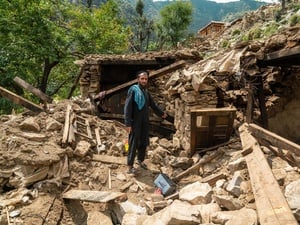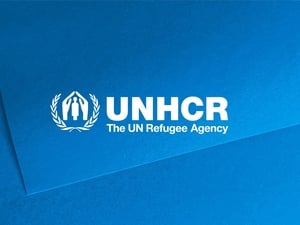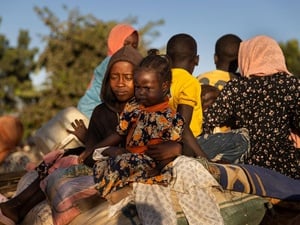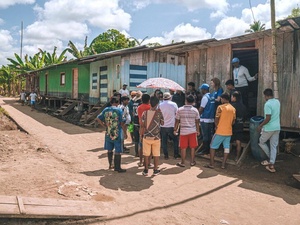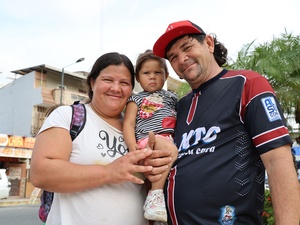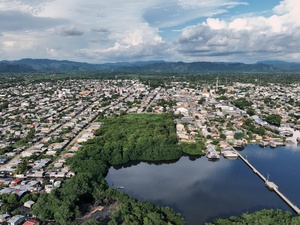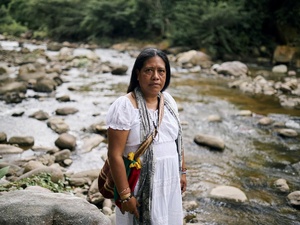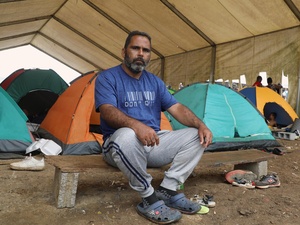Colombia: indigenous murders
Colombia: indigenous murders
UNHCR Colombia is calling for a thorough investigation into the murders of five Awá indigenous people on Wednesday - World Indigenous Day - just before dawn in the village of Altaquer in the south-eastern department of Nariño. We had warned on that day that Colombia's indigenous people were facing terrible consequences of the conflict.
The murdered five - three men and two women - were registered as forcibly displaced and were part of a group of some 1,700 Awá forced to leave their territory last month to escape fighting between the military and an irregular armed group. One of those killed was a former governor, or leader, of the Awá people, and one of the women killed was a teacher. She leaves behind four orphaned children.
According to eyewitnesses, nine armed men conducted a house-to-house search shortly before dawn, took the five people and shot them. The men also went to the house of the current leader of the Awá people who was in Bogota with her husband and four-year-old daughter to take part in events organised by UNHCR and other humanitarian agencies on the occasion of World Indigenous Day.
UNHCR is saddened at the killings and especially shocked that the murders occurred on World Indigenous Day, when we were drawing attention to the plight of indigenous people in Colombia. We call on the Colombian government to fulfil its duty to protect all its citizens. We are especially concerned at the tragic death of five people who were registered as displaced and in clear need of state protection.
Altaquer is one of two villages - the other one is Ricaurte - in the department of Nariño that provided "shelter" to more than 1,700 Awá indigenous who were forced to leave their territories last month. There are 455 displaced Awá in Altaquer and another 1,270 in Ricaurte. A UNHCR staff member is currently in Altaquer to support the displaced community following the killings.
On the day the killings occurred, UNHCR had called on all armed groups in Colombia to leave the indigenous population out of the armed conflict. These latest murders add to the urgency of this appeal. Indigenous people, who live in remote areas of the country where the conflict is at its worst, have increasingly been the victims of violence in recent years. To make matters worst, when they are forced to displace, they often come under suspicion of collaborating with the very armed groups they have tried to escape. More than ever, UNHCR is calling for this persecution of innocent people, which threatens the very survival of entire groups, to stop.


